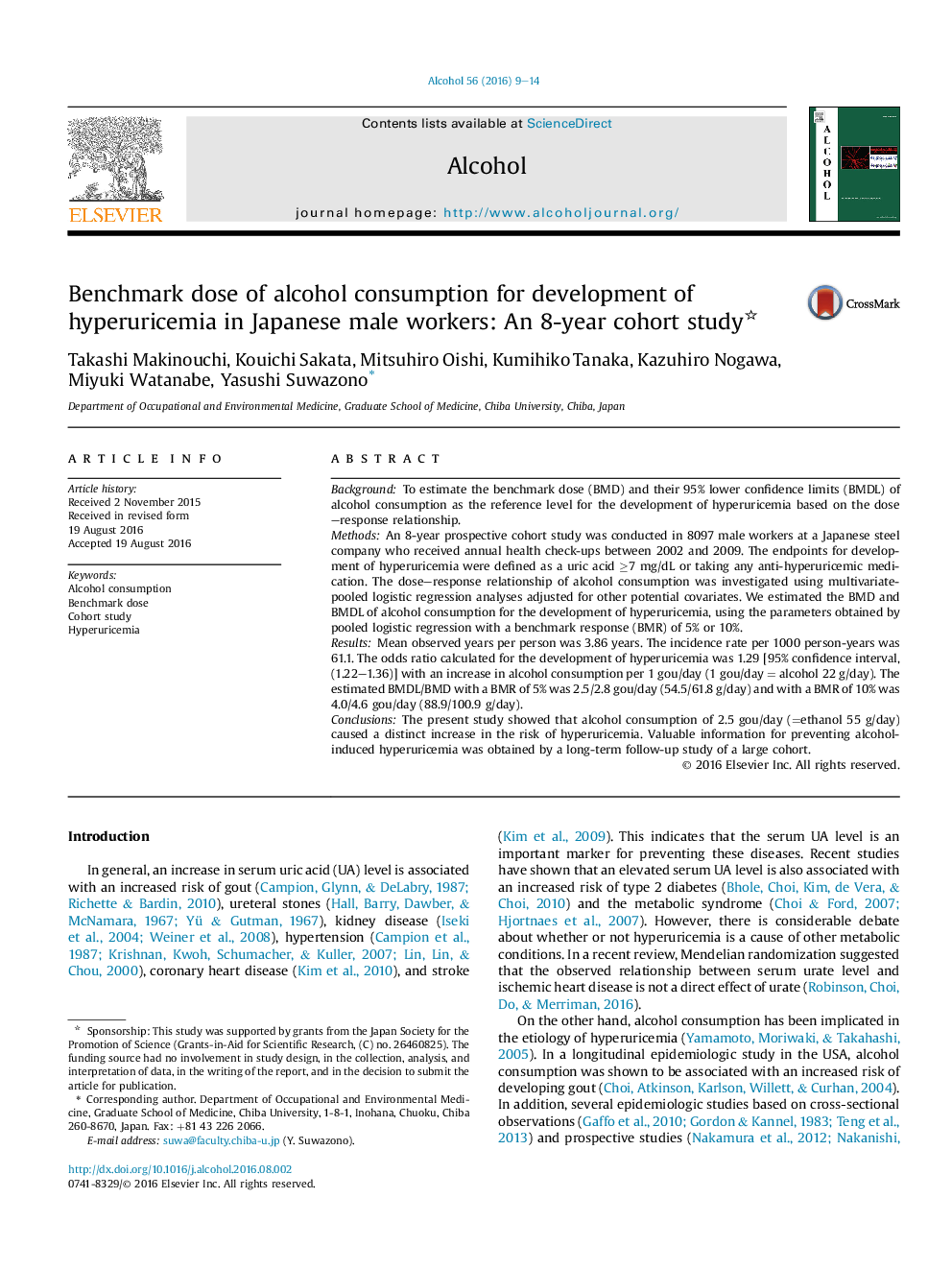| Article ID | Journal | Published Year | Pages | File Type |
|---|---|---|---|---|
| 5119773 | Alcohol | 2016 | 6 Pages |
â¢Recently, the benchmark dose low (BMDL) has been used for assessing risk.â¢An 8-year prospective cohort study was conducted in 8097 male workers.â¢A positive relationship was observed between alcohol consumption and hyperuricemia.â¢The BMDL showed that use of 55 g ethanol/day increased the risk of hyperuricemia.
BackgroundTo estimate the benchmark dose (BMD) and their 95% lower confidence limits (BMDL) of alcohol consumption as the reference level for the development of hyperuricemia based on the dose-response relationship.MethodsAn 8-year prospective cohort study was conducted in 8097 male workers at a Japanese steel company who received annual health check-ups between 2002 and 2009. The endpoints for development of hyperuricemia were defined as a uric acid â¥7 mg/dL or taking any anti-hyperuricemic medication. The dose-response relationship of alcohol consumption was investigated using multivariate-pooled logistic regression analyses adjusted for other potential covariates. We estimated the BMD and BMDL of alcohol consumption for the development of hyperuricemia, using the parameters obtained by pooled logistic regression with a benchmark response (BMR) of 5% or 10%.ResultsMean observed years per person was 3.86 years. The incidence rate per 1000 person-years was 61.1. The odds ratio calculated for the development of hyperuricemia was 1.29 [95% confidence interval, (1.22-1.36)] with an increase in alcohol consumption per 1 gou/day (1 gou/day = alcohol 22 g/day). The estimated BMDL/BMD with a BMR of 5% was 2.5/2.8 gou/day (54.5/61.8 g/day) and with a BMR of 10% was 4.0/4.6 gou/day (88.9/100.9 g/day).ConclusionsThe present study showed that alcohol consumption of 2.5 gou/day (=ethanol 55 g/day) caused a distinct increase in the risk of hyperuricemia. Valuable information for preventing alcohol-induced hyperuricemia was obtained by a long-term follow-up study of a large cohort.
